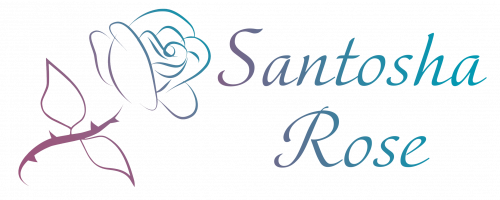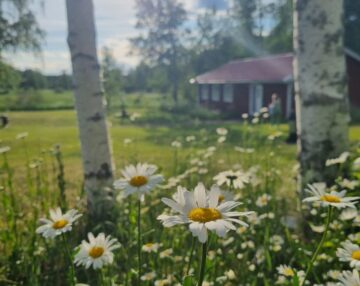This week I shared one of my favourite poems at the end of a class. It’s called “Completeness” by a wonderful poet called Zach Beach. The opening stanza asks these important questions:
What if you were already complete?
What if you already had everything you needed?
What if there was nothing wrong with you at all?
As I reflected on the words of the poem, I realised that a big part of my work is helping people to recognise this truth for themselves. There is nothing wrong with you.
In so many ways, it’s not an easy thing for any of us to accept. I feel like we are bombarded by messages about ways we should change or improve or fix every flaw and imperfection with our faces, our bodies, our minds, our relationships and our lives. Inherent in this is a powerful message… there is something wrong with you that needs to be fixed. We often internalise this and our inner voice begins to collude with those outside voices, hyper focusing on our self-diagnosed faults and flaws and making us feel worse about ourselves. We then (reluctantly) bring “negative self-talk” into the family of things about us that we need to fix. And the cycle continues.
There is an alluring quality to the idea that we could “fix” everything that is wrong with us and one day in the future, we will be perfect and whole. I think it appeals to the problem-solving mind and our societal obsession with achieving goals. It’s then reenforced by our dopamine network, which gives us a rush of feel-good hormone when each goal is achieved. And in the right context, setting and achieving a goal can also help us to feel empowered and like we have agency over our lives, something that helps us to respond more positively to stressful life events and adversity. So, there’s a lot in favour of sticking with the established model that we are broken and need to be fixed. And yet, I think it limits us more than it liberates.
For me, there is a fundamental question at the heart of this issue that needs to be asked… who do you take yourself to be? For the first 27 years of my life, I looked to other people for the answer. To the roles that I played, to the relationships I was in, to school teachers, and university lecturers, to parents and managers and friends. Constantly, in a million different ways, asking: Am I good enough? Am I worthy? Am I loveable? I learned how to please and perfect and perform in ways that made the answer to these questions positive more often than they were negative. But there was a tremendous vulnerability in this approach. If other people were needed to reassure me of my worthiness, was I worthy without them? And what if they changed their mind? Cue more striving, hustling, and perfecting.
I became very defined by the roles that I played. I developed an identify as a hard worker. An achiever. A person who got things done. I had no sense of myself outside of the way I behaved and the things I did. In both psychology and yoga philosophy, this mind-made identity is called the ego. And as human beings, we all have one. For some of us this egoic identify has a lot of positive traits. It may be kind, successful, funny or charming. For others, it has more negative traits like being mean, victimised, rude or lazy. Most of us will have a blend of both positive and negative in our mind-made sense of self. Different strands of psychology have different things to say about the ego and how to work with it/develop it/tame it etc. One could spend a lifetime learning about and working with their ego. And many have. In yoga philosophy, the guidance is more straightforward; irrespective of how good or bad your ego identity is, if you take it to be who you are, you will suffer.
At the foundation of yoga philosophy is the belief that every human being is a spark of divine life, true essence or Self and that this is encased by a number of other layers that make it possible for us to interact and experience the world. The yogis call the divine spark the Atman and the surrounding layers the Koshas. There are 5 layers to the Koshas; physical, energetic, mental, wisdom and bliss. Each of these layers interact with the material world and are affected by the things that happen in those interactions. Our bodies can become sick. Our minds can be disturbed. Our energy can feel depleted or stagnant. We can feel that we lose access to our wisdom and sense of bliss. And yet in the yogic view, the very essence of who we are, the Atman, cannot be affected by the things that happen in the world. It cannot get sick. It is never depleted. It is not disturbed by the world. The practice of yoga is one of recognising that this is our true nature and that our bodies and minds, though an essential part of our human experience, are not actually who we are.
So, to go back to the question I posed earlier, who do we take ourselves to be? If it is only our mind-made egoic self, consisting of our aging bodies, our changeable energy levels, and our easily disturbed minds, we will always believe there is something wrong with us. Because human beings are not supposed to be perfect and no matter how hard we try, we never will be on that level. But if we recognise that we are more than that. That we are a spark of divine life. That at our core we are whole and beautiful and undamaged by the ravages of the world, then suddenly the idea that we are flawed becomes absurd. Like saying that a daffodil is flawed. Or a songbird is flawed. Or the moon is flawed. Of course they aren’t. And neither are we.
There is another interesting aspect to making this paradigm shift. As we begin to live more and more of our lives grounded in our essence or true Self, our lives start to be infused with the qualities of who we really are. We naturally become kinder. More patient. More generous in our dealings with others. Less fearful and contracted. As these qualities begin to show up more often and spread into our lives, many of the things that we used to strive so hard to change about ourselves, start to change on their own. We treat our bodies with more love and kindness. We don’t get so lost in the stories and judgements of our minds. We are drawn to people and activities that give us a more consistent and peaceful energy. All the things that we couldn’t change though pushing and striving, begin to gradually work themselves out. But not because we’re trying to fix ourselves. Rather because we’ve recognised that at the most fundamental level, there is nothing to fix.



